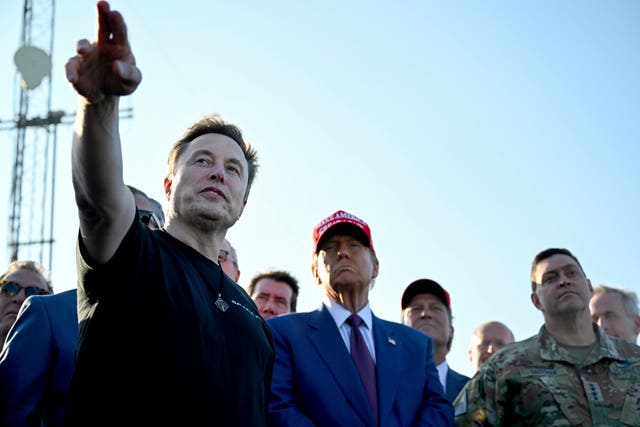
Henry Riley 7pm - 10pm
25 November 2024, 14:44

The X owner accused Australia of censorship in April over the measure.
An Australian minister has rejected X owner Elon Musk’s allegation that the government intends to control all Australians’ access to the internet through legislation that would ban young children from social media.
Treasurer Jim Chalmers said Mr Musk’s criticism was “unsurprising” after the government introduced legislation that would fine platforms including X up to 150 million Australian dollars (£68 million) if they allow children under age 16 to hold social media accounts.
He told reporters: “The idea that Elon Musk is not delighted with our steps to try and protect kids online is not an especially big surprise to us, nor does it trouble us greatly.”
The spat continues months of open hostility between the Australian government and the tech billionaire over regulators’ efforts to reduce public harm from social media.
TODAY: We're introducing our bill to make 16 years the minimum age for social media.
— Anthony Albanese (@AlboMP) November 20, 2024
Parliament could pass legislation as soon as next week that would oblige X, TikTok, Facebook, Snapchat, Reddit and Instagram to ban young children from their platforms.
The legislation introduced on Thursday will be debated in Parliament on Monday.
Mr Musk responded to the legislation’s introduction by posting on his platform: “Seems like a backdoor way to control access to the Internet by all Australians.”
Asked if that was the government’s intention, Mr Chalmers replied: “Of course not.
“Elon Musk having that view about protecting kids online is entirely unsurprising to us. He’s expressed similar views before.

“Our job is not to come up with a social media policy to please Elon Musk. Our job is to put in place the necessary protection for kids online.”
In April, Mr Musk accused Australia of censorship after an Australian judge temporarily ruled that X must block users worldwide from accessing a video of a bishop being stabbed in a Sydney church.
Prime Minister Anthony Albanese responded by describing Musk as an “arrogant billionaire” who considered himself above the law and was out of touch with the public.
Australian eSafety Commissioner Julie Inman Grant, the online safety watchdog who brought the court case against X, has said the legal battle led to online attacks against her and her family, including the release online of personal information without her permission, known as doxxing.
She said Mr Musk had “issued a dog whistle to 181 million users around the globe” which resulted in her receiving death threats.